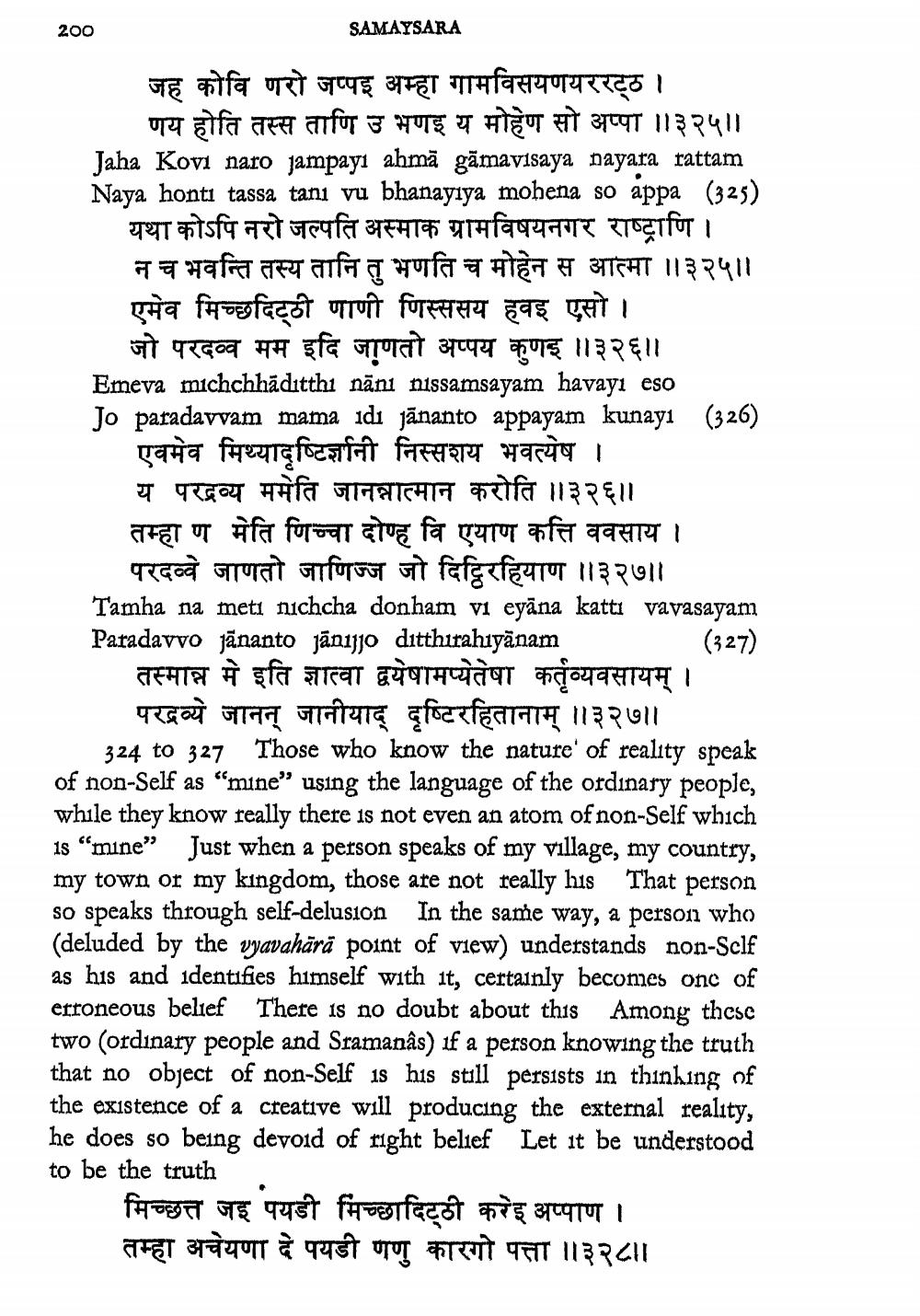________________
200
SAMAYSARA
जह कोवि णरो जप्पइ अम्हा गामविसयणयररट्ठ ।
णय होति तस्स ताणि उ भणइ य मोहेण सो अप्पा ॥ ३२५ ॥
Jaha Kovi naro jampayı ahmā gāmavisaya nayara rattam Naya honti tassa tani vu bhanayiya mohena so appa (325) यथा कोऽपि नरो जल्पति अस्माक ग्रामविषयनगर राष्ट्राणि
न च भवन्ति तस्य तानि तु भणति च मोहेन स आत्मा ॥ ३२५॥ एमेव मिच्छदिट्ठी गाणी णिस्ससय हवइ एसो ।
जो परदव्व मम इदि जाणतो अप्पय कुणइ ॥ ३२६॥ Emeva michchhäditthi nani nissamsayam havayı eso Jo paradavvam mama idi jānanto appayam kunayi (326) एवमेव मिथ्यादृष्टिर्ज्ञानी निस्सशय भवत्येष ।
य परद्रव्य ममेति जानन्नात्मान करोति ॥ ३२६॥
तम्हाण मेति णिच्चा दोण्ह वि एयाण कत्ति ववसाय । परदव्वे जाणतो जाणिज्ज जो दिट्ठिरहियाण ॥ ३२७॥
Tamha na meti nichcha donham vi eyana kattı vavasayam Paradavvo jananto jānijjo ditthirahiyānam (327)
तस्मान्न मे इति ज्ञात्वा द्वयेषामप्येतेषा कर्तृव्यवसायम् । परद्रव्ये जानन् जानीयाद् दृष्टिरहितानाम् ॥ ३२७॥
324 to 327 Those who know the nature' of reality speak of non-Self as "mune" using the language of the ordinary people, while they know really there is not even an atom of non-Self which 1s “mine" Just when a person speaks of my village, my country, my town or my kingdom, those are not really his That person so speaks through self-delusion In the same way, a person who (deluded by the vyavahārā point of view) understands non-Self as his and identifies himself with it, certainly becomes one of erroneous belief There is no doubt about this Among these two (ordinary people and Sramanâs) if a person knowing the truth that no object of non-Self is his still persists in thinking of the existence of a creative will producing the external reality, he does so being devoid of right belief Let it be understood to be the truth
मिच्छत्त जइ पयडी मिच्छादिट्ठी करेइ अप्पाण । तम्हा अयणा दे पयडी गणु कारगो पत्ता ॥३२८॥




